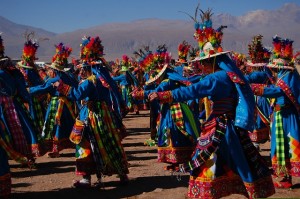 Poets from Chile
Poets from Chile
During the period of 1900 to 1925, a new form of literature genre was introduced in the country of Chile. Poetry was considered avant-garde meaning that the concept of poetry was experimental and innovative. Pedro Prado wrote the first Chilean poem in 1908. It was titled “Flores de cardo” (Thistle flowers). Prado was born in 1886. His mother passed away when Prado was only two years old, and his father passed away before the poet was 20. After studying engineering and architecture and after traveling to northern Chile and Argentina, he began to write poetry that broke the metric rhyme rule and introduced people to freestyle type poetry. In 1914 he founded the Chilean literary group, Los Diez. Prado opened the door for other Chilean poets.
In 1945, Gabriela Mistral was the first Chilean woman to win a Nobel Prize in poetry for her lyrical poetry piece. She was first noticed when she won first place in the Juegos Florales contest for her poem, Sonetos de la Muerte (Sonnets of Death).
Pablo Neruda led the once experimental poetry genre into the next quarter of the 20th century when in 1923 he published Crepusculario. In 1924, he published Veinte poemas de amor y una canción desesperada. From 1925 to 1970 Pablo Neruda continued to write poetry. Five Decades (poems between 1925-1970) was published in 1994. Neruda originally got his start writing poems when he was 10-years-old. He amazed people with his many different poetic styles, including surrealist and historical epics.
Oscar Hahn joined the Chilean poetry movement in the late 1950s and early 1960s. His Black Rose (Esta Rosa Negra) won Hahn the Society of Chilean Writers’ Alerce Prize. This poem was inspired by the end of Hahn’s adolescent and the conservative shift that was taking place in the early 1960s. Generation 1960 was a literary movement about to blossom in Chile. Hahn was bidding farewell to the dying culture of the 1950s and those that came before. The poets of the 1960s wrote about the military coup in which some of the poets were either exiled to other countries or imprisoned for criticizing the government.
In the 1980s, Generation NN was established. A powerful, feminine voice had risen to talk about Mapuche poetry. One of those voices was Myriam Díaz Diocaretz. In addition, Judy Berry-Bravo who was an American scholar also wrote a book about Chilean poetry in the 1980s.
Chilean poets in the past century have written about the values and the passions of Chilean life. They continue to praise Chilean strength and its citizen’s ability to overcome some of the country’s harsh political arena. Regarding poetry, Chile is known for describing the rich 1569 heritage of the Mapuche Indians and the conquistador war. Chilean poets of today continue to write about the challenges and victories of modern day Chile and all that this beautiful and multi-faceted culture brings.




